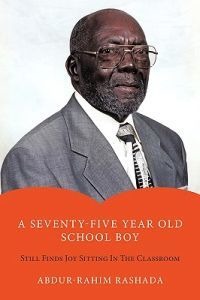
Liknande böcker
A Study of the Response to the Biblical Role of the Holy Spirit : in the African American Church
Bok av Laura L Wright-Mathews
An Understanding of the biblical role of the Holy Spirit in the church, which is called the "Body of Christ", is extremely important as we move toward the close of the Church age. It's importance is recognized most profoundly as we accept the Scriptural reference of Christ as the Head of the Body, and accept His word as truth. The writer of the Epistle to the Hebrews declares that "Moses indeed was faithful in all his house as a servant ... But Christ as a Son over His own house, whose house we are if we hold fast to the confidence and rejoicing to the hope firm to the end" (Hebrews 3:5,6). And, in Paul's Epistle to the Ephesians, he assures us that God "put all things under His (Christ's) feet, and gave him to be head over all things to the church."
Clearly we find in Scripture that "having learned obedience by the things which He suffered; and having been perfected, He became the author of eternal salvation to all who obey Him. And He gave the eleven disciples one important command which is enveloped in what we may count as a farewell address gives a clear role that the Holy Spirit would assume after He ascended to His Father. This includes the assurance that He would continue to reveal truth to the church through the Holy Spirit, saying
"I still have many things to say to say to you, but you cannot bear them now. However, when He the Spirit of truth, has come, He will guide you into all truth; for He will not speak on His own authority, but whatever He hears, He will speak, and He will tell you things to come. He will glorify Me, for He will take what is mine and declare it to you (John 6:12-15 - NKJ-Version).
This study then, is an attempt to clarify the role that Jesus commands the Holy Spirit to perform as an "Helper" to the church, who will abide with the church teaching us all things and bringing to remembrance the things that Jesus Christ, the Head wants us to do (John 14:26). The major message of this study is, should we not "Let Christ Be Heard." To t
Visa pris inkl. frakt Inkl. frakt







